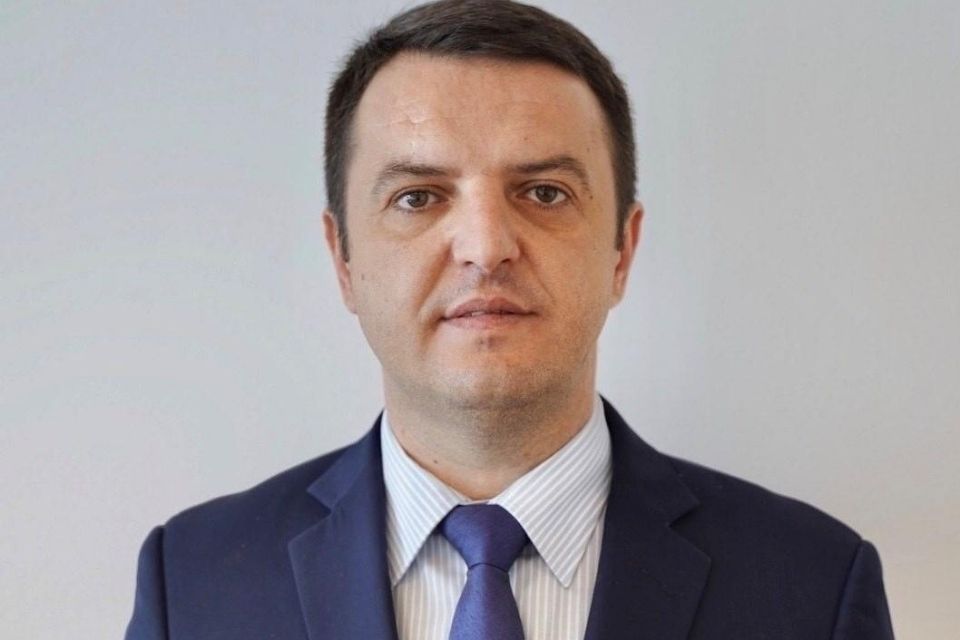Take Five: “The signing of this Memorandum seeks to create the best possible employment opportunities for survivors of domestic violence”
In a significant step towards reintegrating and economically empowering survivors of domestic and conflict-related sexual violence, Kosovo’s Ministry of Justice, Kosovo Women’s Network, a network of 151 women’s organizations, and the Kosovo Retail Network, a private sector association, signed a Memorandum of Cooperation on 8 July. UN Women facilitated the dialogue between the signatories and provided support to the Ministry throughout the process. Minister of Justice Selim Selimi spoke to us about the agreement and its plans to improve the lives of survivors.Date:

What is the significance of this Memorandum?
The Memorandum of Cooperation that we signed with the Kosovo[1] Women’s Network, on behalf of domestic violence shelters and survivors of conflict-related sexual violence, and with the Retail Network, will specifically facilitate employment in the retail sector for domestic violence survivors housed in shelters as well as survivors of sexual violence in conflict. The importance of this Memorandum lies in preventing their return to the cycle of violence by creating favourable conditions for survivors’ professional advancement and financial independence – factors which directly affect their reintegration into society.
How important is gender equality and women's empowerment for the Ministry of Justice?
Strengthening the role of women in society is of utmost importance for the Ministry of Justice. We are constantly trying to protect women’s rights through various mechanisms. We have appointed the National Coordinator against Domestic Violence, which is key to implementing the National Strategy for Protection from Domestic Violence, one which has been supported by UN Women from the start. The signing of this Memorandum seeks to create the best possible employment opportunities for survivors of domestic violence and sexual violence during conflict. We, as the Ministry, are open for cooperation with all other institutional and private actors, to work especially on reintegrating survivors in society.
As Minister of Justice, how have you advocated for the protection of women?
Kosovo has made progress in protecting women’s rights, especially in the legal framework that addresses domestic violence. The Criminal Code has been revised, adding an accurate definition of domestic violence as a separate criminal offense, precisely defining all acts of domestic violence in accordance with the requirements of the Istanbul Convention. Furthermore, the unified database – established with the support of UN Women and the European Union, and recently handed over to the Ministry of Justice – enables the monitoring and prosecution of cases of domestic violence in Kosovo. It ensures accountability by obliging the relevant institutions to insert necessary data from central and local levels. This database is considered an essential step towards implementing the standards set out in the Istanbul Convention.
Considering that reintegration is a key part of the National Strategy for Protection from Violence, and not a lot has been done yet in this regard, what are your plans?
The primary plan is to implement the UN Women-supported National Strategy for Protection from Domestic Violence, which is in full compliance with the Istanbul Convention. The very purpose of this Memorandum is reflected in Article 18 of the Istanbul Convention, which states that parties must seek “the empowerment and economic independence of women victims of violence.” We are working intensively with the Kosovo Women’s Network and the Retail Network to compile the list of survivors who need employment, as well as the list of reserved positions for employment in the retail sector.
Given the disproportionate impact of the COVID-19 pandemic on women and girls, what is the Ministry of Justice doing to mitigate this?
The situation created by COVID-19 has had a big impact all over the world, further aggravating socioeconomic problems already felt by vulnerable groups. It is already a known fact that in all areas –economic, domestic violence, social protection – the effects are worse for women and girls. In this regard, the Ministry is trying to use all of its capacities and opportunities for cooperation to mitigate this as much as possible. We are taking quick and safe steps in this direction. Gender equality and women’s rights are essential to coming out of this pandemic together, healing faster and building a better future for all.
[1] All references to Kosovo should be understood to be in the context of United Nations Security Council resolution 1244 (1999).